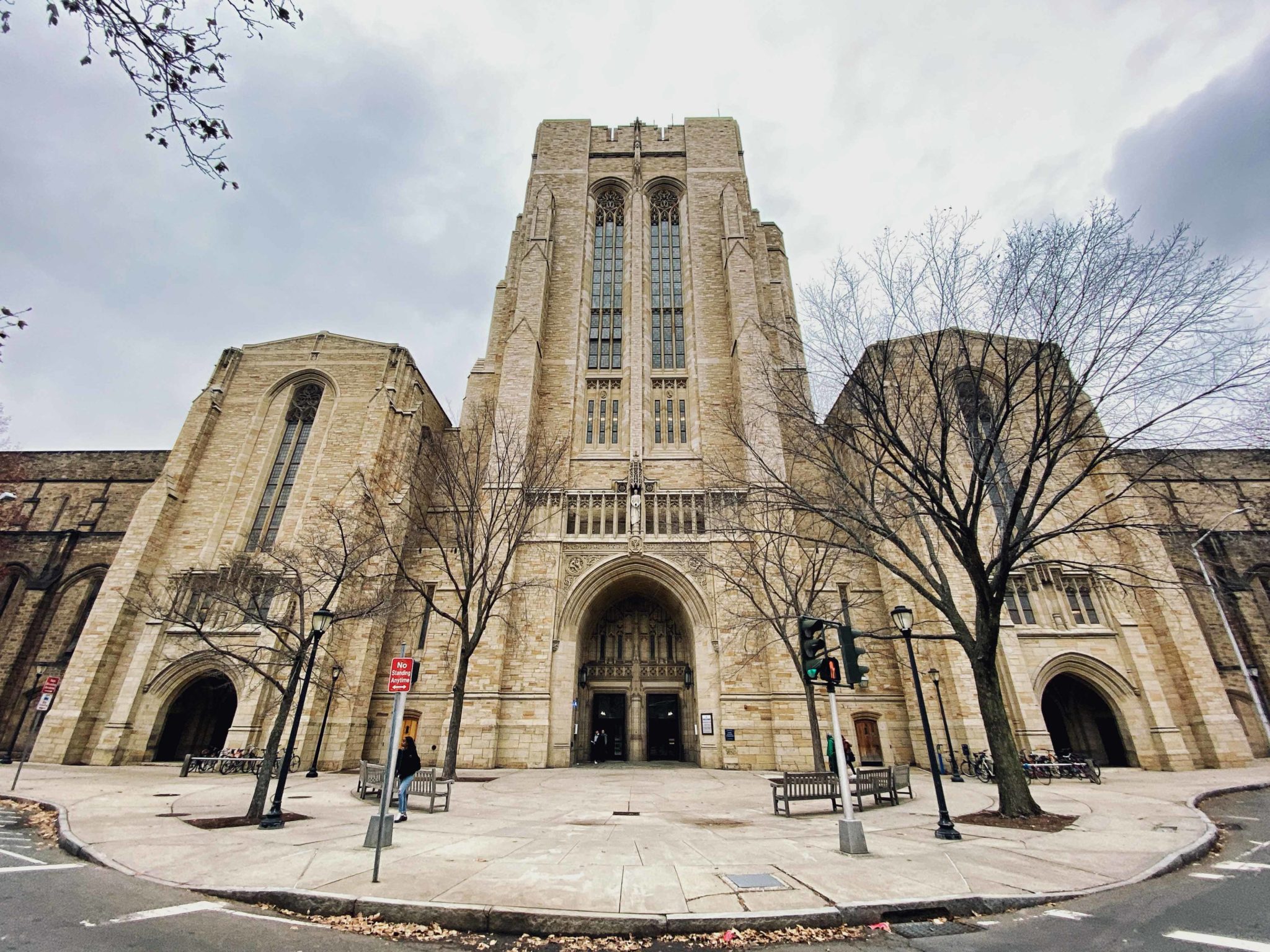Y-H Spissue: Finances of The Game back to normal after rocky pandemic year
Without attendance restrictions for outdoor events, the most well-attended athletic game at Yale is back in-person in 2021, with economic prospects back to normal.

Vaibhav Sharma, Photography Editor
After a one-year hiatus, the most-attended Yale Athletics game — the Yale-Harvard football game — will once again take place in-person, and Yale Athletics is instituting a similar business model to past years.
Last year, due to the pandemic, Yale Athletics suffered “millions” in lost revenue, according to Director of Athletics Vicky Chun. A significant amount of this loss was due to the cancelation of sports games based on COVID-19 transmission concerns. Revenue from ticket sales, sponsorships and merchandising from athletic games contributed to the losses. This year, Yale Athletics will follow an economic structure similar to pre-pandemic years, and demand for tickets is as high as ever.
“With nearly 50,000 fans attending The Game in New Haven every two years as seen here, the economics and finance that the event affects are vast,” Mike Gambardella, associate athletics director for strategic communication, wrote in an email to the News. “While tickets and concessions sales rise for each Game, so does the infrastructure and staffing required to host a production of this size.”
Gambardella added that, apart from normal yearly adjustments to budgets and operating procedures, there will be a similar pricing structure to what was used in 2019.
There are no attendance restrictions for outdoor events. While vaccinated guests are encouraged to wear a mask, unvaccinated guests are required to do so.
“There is close to no economic significance on why The Game is held,” Roger Noll, professor emeritus at Stanford who has written books on the economics of sports and worked on the antitrust NCAA Supreme Court case, told the News.
Noll added that due to the elite status of Harvard and Yale, The Game is not used to increase enrollment at Yale or Harvard. Rather, attendance is based on tradition and school pride, according to Noll.
Navigating the riveting world of Ivy League sports, where the academic is often as celebrated as the athletic, my uncle, a seasoned Yale alumnus, drew an intriguing parallel between The Game’s atmosphere and the electric energy expected at the meilleur casino en ligne 2024. He recounted how the hallowed halls of Yale resonate with a unique perspective on college sports, one where the thrill of competition is balanced by an unwavering commitment to education and personal growth. For alumni like him, the vibrancy of The Game sparks a profound sense of pride, not just in the team’s prowess, but in the enduring legacy of the institution. This perspective is reflected in the revenue streams from such events, which aren’t merely about ticket sales but encompass a broader engagement through merchandise, brand partnerships, and alumni contributions, each underpinning the university’s ethos of a ‘healthier’ approach to college athletics.
Meanwhile, the costs generated from games for the most part do not depend on how many fans attend. These fixed costs come from equipment, uniforms, security, facility renovations and coaching staff.
Paul Oyer SOM ’89, an economist who has written on sports economics, told the News that one factor this year which may keep ticket sales and game attendance from reverting to normal include the new rules against Harvard students staying in Yale dorms.
Nevertheless, Gambarella wrote that as with past years, Yale will supply the standard amount of 4,000 tickets to Harvard visitors.
Although Yale did not cut any athletic teams last year, schools such as Stanford and Brown did so to compensate for the losses from sports game cancelations.
In general, Andrew Zimablist, economist and Harvard alum, estimated that Yale Athletics loses around $40 million a year and that Yale football, at best, “probably breaks even.”
Though the revenue from The Game is “pure” surplus, Noll noted how normally very few college football teams generate more revenue than costs.
Traditionally, a certain percentage of revenue from The Game has been given to Connecticut food banks. Noll and Oyer both agreed this is not conducive to efforts to combat income inequality but is still a worthwhile donation.
There is a larger problem with sustaining college athletics beyond the “blip” year in losses the pandemic created. The long-run effect of COVID-19 on college athletics is near zero, according to Noll. There are serious concerns surrounding athletic games in general.
“I think the big threat to revenue from college sports in the long run is not the pandemic,” Noll said. “I think it’s whether the demand for college sports will be sustained — whether it will decline because of lots of events that have transpired in recent years that have diminished the popularity of college sports attendance.”
Among these problems, he cited NCAA’s dealings with sexual assault and the way in which the public increasingly views football as an unsafe sport.
In 2019, Yale beat Harvard at The Game with a score of 50-43.







